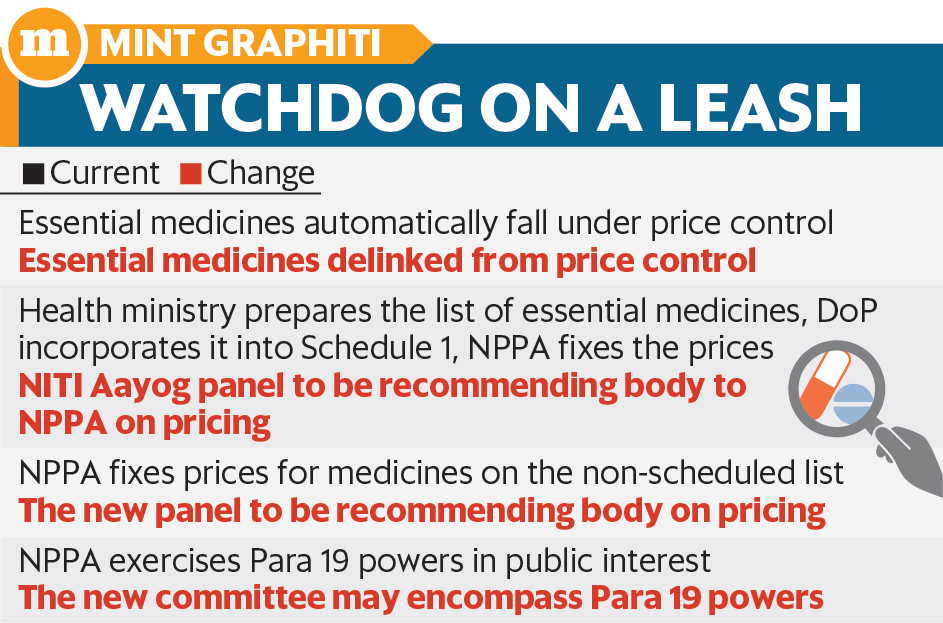Why in news?
The government has recently authorised NITI Aayog to recommend drugs that could be put under price control.
What is the existing mechanism?
- The National Pharmaceutical Pricing Authority (NPPA) enforce prices and availability of the medicines in the country, under the National List of Essential Medicines (NLEM).
- Essential Drugs - The health ministry prepares the list of drugs eligible for price regulation.
- The department of pharmaceuticals (DoP) then incorporates NLEM into Schedule 1 of the Drugs (Prices Control) Order (DPCO).
- Following this, NPPA fixes the prices of drugs in this schedule.
- Drugs which are declared essential by NPPA would automatically come under price control.
- NPPA regularly publishes this list and their maximum ceiling prices.
- Para 19 powers - NPPA also exercises Para 19 powers in public interest.
- In 2013, the government had delegated these powers to NPPA, which it can exercise for setting the price cap of scheduled and non-scheduled drugs.
- These are the same powers NPPA used in 2017 to cap prices of cardiac drugs, stents and knee implants.
- NPPA also regulates prices of other health products such as stents.
- Those on the non-scheduled list are allowed a maximum annual price hike of 10%.
- More than 750 formulations are currently on India’s list of essential medicines.
What are the changes made?

- Recommending body - From now, Standing Committee on Affordable Medicines and Health Products (SCAMHP) housed in the NITI Aayog will decide which drugs should be under price control.
- SCAMHP has been constituted to act like a recommending body to NPPA regarding prices of drugs and health products.
- In the new order, the SCAMHP will be a recommending body to NPPA regarding prices of drugs and health products.
- Also, the committee may take a matter related to pricing for examination, suo motu or on the recommendations of DoP, NPPA and the department of health and family welfare.
- The power to set price caps on other drugs has also been taken away from the NPPA and given to the committee under the NITI Aayog.
- Para 19 powers - Under the new order, the committee may also encompass the powers under Para 19 of DPCO.
What are the concerns?
- The change in regulation gives arbitrary power to the committee to determine which medicine is sold at which price.
- Such mechanisms always breed lobbying, even if that is not the immediate intention.
- By making a standing committee of NITI Aayog to scrutinise NLEM, the government has diluted the mandate of affordability.
- Hence, all drugs will now undergo the scrutiny of the committee housed in NITI Aayog, of which NPPA is not a member.
- Also, the changes will weaken the functions of NPPA as an enforcement body.
- NPPA was taking strict action against those companies found to be overcharging by sending demand notices.
- With this, the ability to enforce and recovery of overcharging will be curtailed.
Source: Business Standard, Live mint
